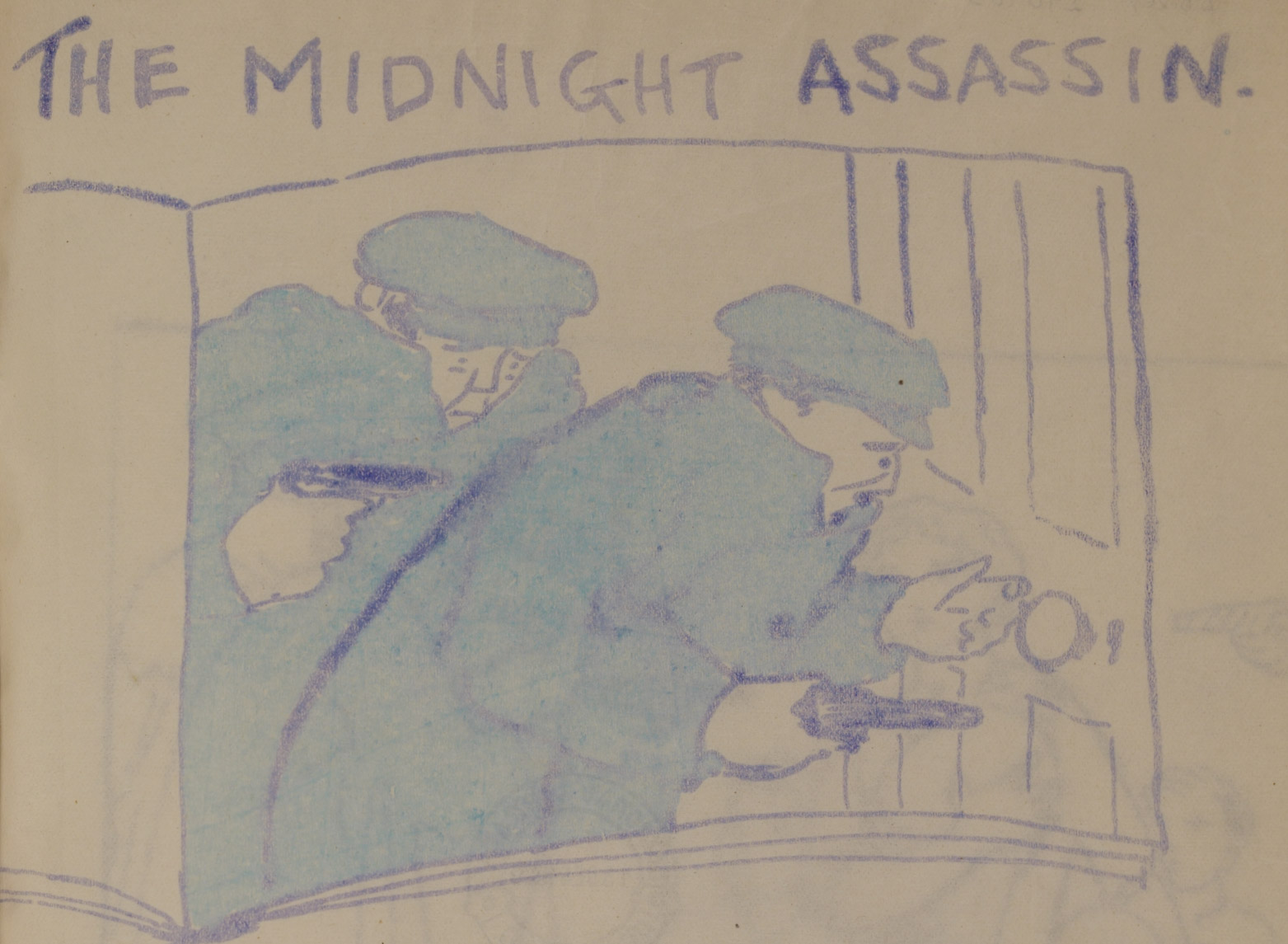Disturbing evidence of ‘devilish practice’ of killing men without trial heard at inquest
Dublin, 12 September 1922 – The coroner’s inquest into the killing of two young men, both members of the Irregulars, has begun in St Michael's Hospital in Dun Laoghaire.
The inquest is investigating the circumstances of the deaths of Rodney Murphy (22) of Deansgrange and Leo Murray (19) of Charlemont Avenue in Dun Laoghaire, who were shot dead at Grove Park Lodge in Stillorgan on 2 September.
A post mortem examination found that a bullet had entered the body of Rodney Murphy on the left side, penetrating the spleen, stomach and heart, leading to his death from shock and haemorrhage. Leo Murray sustained a bullet wound to the head, the bullet entering behind the right ear and exiting on the left side. In both cases, death was almost instantaneous.
The official military account of what occured states that military intelligence had received information that Rodney Murphy, an escaped prisoner, was in the house in Stillorgan. When national troops went to arrest him at the cottage and broke into the room, they were fired upon. The two men were killed, the military contends, when the soldiers returned fire.
The inquest jury returned a unanimous verdict to the effect that Murphy and Murray met their deaths at the hands of the national military in the ‘discharge of their duty’.
However, the court heard disturbing evidence about the conduct of the soldiers.
The mother of Charles Murphy told the inquest that officers from the Criminal Investigation Department had raided her house between 4 and 5am the week before her son’s killing and told her they would riddle him with bullets and present her with his dead body.
Murphy’s neighbour, Mary Reamsbottom, confirmed that armed men in lorries had visited Mrs Murphy’s house the week before the killing.
Another witness, one of four men present when the military arrived
at Grove Park Lodge – 19 year-old James Nolan –
described himself as a proud soldier of the IRA. He recounted how,
after the shootings, he was taken into the kitchen with another
man, Andrew O’Neill, and faced towards the wall while his
pockets were searched. ‘I was told’, he added,
‘to say my prayers as I was going to be shot.’
Despite the verdict in favour of the national soldiers, the
coroner addressed the issue of the morality of killing. Regardless
of who is right or wrong in the current civil strife, he argued,
one could not close one’s eyes to the devilish practice of
taking a man from his bed in the dead of night without any
semblance of trial and sending him before his creator. Whatever
section of the community – regular or irregular as they were
rightly or wrongly called – was responsible for such a
regime would have to face a greater responsibility some time or
other.
Proceedings from Day of the Irish Civil War Confernece at UCC, June 2022. Included conference sessions on ‘Trauma’ and ‘Disorder’ as experienced during the Civil War
[Editor's note: This is an article from Century Ireland, a fortnightly online newspaper, written from the perspective of a journalist 100 years ago, based on news reports of the time.]





















